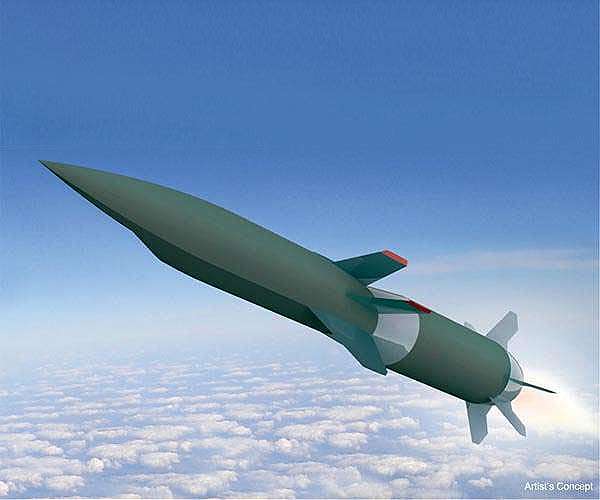
AFRL, CNM Ingenuity shift innovation to next level at Hyperdrive Space Summit (Image Credit: Space war)
The Air Force Research Laboratory, or AFRL, partnered with CNM Ingenuity, or CNMI, the economic development arm of Central New Mexico Community College, to hold the 2022 Hyperdrive Space Summit in Albuquerque, New Mexico, Nov. 15-17, 2022. The Hyperdrive Space Summit is an evolution of the Hyperspace Challenge that AFRL’s Technology Outreach Office began in 2018, in collaboration with CNMI, with the goal of growing the space economy in the southwest.
Gabe Mounce, the director of the AFRL Technology Outreach Office at Kirtland Air Force Base, New Mexico and deputy director of SpaceWERX, the innovation arm of the Space Force, has been engaged in AFRL’s space technology innovation efforts since 2016. In his summit opening remarks, Mounce set the stage on the event’s purpose.
“The summit was created to include a cross section of participants comprised of small businesses, military leaders and members from the U.S. Space Force, SpaceWERX, investors and community professionals,” Mounce said. “All of these groups have an interest in tapping into the innovation and capabilities being generated in the commercial space sector.”
Mounce added that the commercial space sector is estimated to grow to $4 trillion in the next several years, dwarfing the money the federal government invests in space. He said 100,000 spacecraft are expected to be in orbit soon, exceeding previous years by a factor of 10.
“With this meteoric rise, what many call the Second Golden Age of Space, the federal government, and especially the Space Force, want to be better consumers and co-investors with industry, to tap into these huge opportunities for innovation and space capability,” Mounce said. “The Space Force needs these capabilities because the commercial sector is growing so fast, causing the space domain to be congested and increasingly contested.”
Kathy Steen, CNMI senior program manager for the Hyperspace Challenge, led the summit that included more than 150 participants from space technology small businesses, academia, government and others from the space community. Participants included those that took part in previous Hyperspace Challenges and new invitees.
“The challenges focused on matching pressing AFRL and Space Force needs with innovative technologies from teams not yet familiar with government contracting, in which the winners received funding to begin the government acquisition process,” Steen said. “This year we brought together 85 teams to network with government researchers, industry experts and investors to connect and deepen collaboration efforts to further their visions and mission needs.”
Steen added that the Hyperdrive Summit is a celebration of five years of AFRL and SpaceWERX in their technology scouting and acceleration activities.
Mounce and Steen agreed the summit exceeded expectations, which were set higher than previous Hyperspace Challenges. Mounce said the goals achieved are:
+ It brought attention on the national level to the growing space economy in New Mexico and highlighted it as a place for space business to thrive.
+ It enabled small businesses and venture-backed startups the opportunity to meet with U.S. Space Force and other government personnel, creating opportunities to explore missions that fit their products and solutions.
+ It enabled military and government officials to gain an increased perspective of how fast the commercial space sector is growing, especially within the small business and venture-backed startup community across the globe.
+ It highlighted the importance of science, technology, engineering and math, or STEM, literacy to the growing space industry and the need to better develop the space workforce of the future.
“This summit was hugely important as we brought together companies that have previously found a mission-fit via the Hyperspace Challenge or Catalyst Space Accelerator, both integrated into SpaceWERX’s tech scouting operation; the Q-Station Soft Landing program which enables small businesses to tap into the growing New Mexico space economy; and the Ignitor, a new incubator partnership with NewSpace New Mexico, to aid small businesses in growing their technical and investment readiness nationwide,” Mounce said.
Mounce added that these groups along with private sector investors, government representatives, and the broader technology community enabled collaborative opportunities and private-public partnerships that are the first step toward the relationship the USSF is fostering to leverage fast-growing commercial capabilities.
“Based on the current trajectory, the commercial space economy will continue to drive most of the innovation happening in space,” Mounce said. “The summit validated the predictions for the growth of the space economy despite a recent worldwide economic slowdown. Space is now truly for everyone.”
Related Links
Air Force Research Laboratory
Rocket Science News at Space-Travel.Com
|
|
Tweet |
|
|
|
We need your help. The SpaceDaily news network continues to grow but revenues have never been harder to maintain. With the rise of Ad Blockers, and Facebook – our traditional revenue sources via quality network advertising continues to decline. And unlike so many other news sites, we don’t have a paywall – with those annoying usernames and passwords. Our news coverage takes time and effort to publish 365 days a year. If you find our news sites informative and useful then please consider becoming a regular supporter or for now make a one off contribution. |
||
|
SpaceDaily Monthly Supporter $5+ Billed Monthly |
SpaceDaily Contributor $5 Billed Once credit card or paypal |
|
Evolving time-tested technology to outmatch hypersonic weapons inside the atmosphere
Washington DC (SPX) Dec 08, 2022
When it comes to defending against hypersonic weapons that move and maneuver at more than five times the speed of sound, you need layers of defense and multiple opportunities to take out the threat.
Seeking the first missile specifically designed to defeat hypersonic threats in their most vulnerable phase of flight, the glide phase, the MDA selected Raytheon Missiles and Defense, or RMD, a business of Raytheon Technologies, as one of the companies to develop the Glide Phase Interceptor, or GPI. … read more









